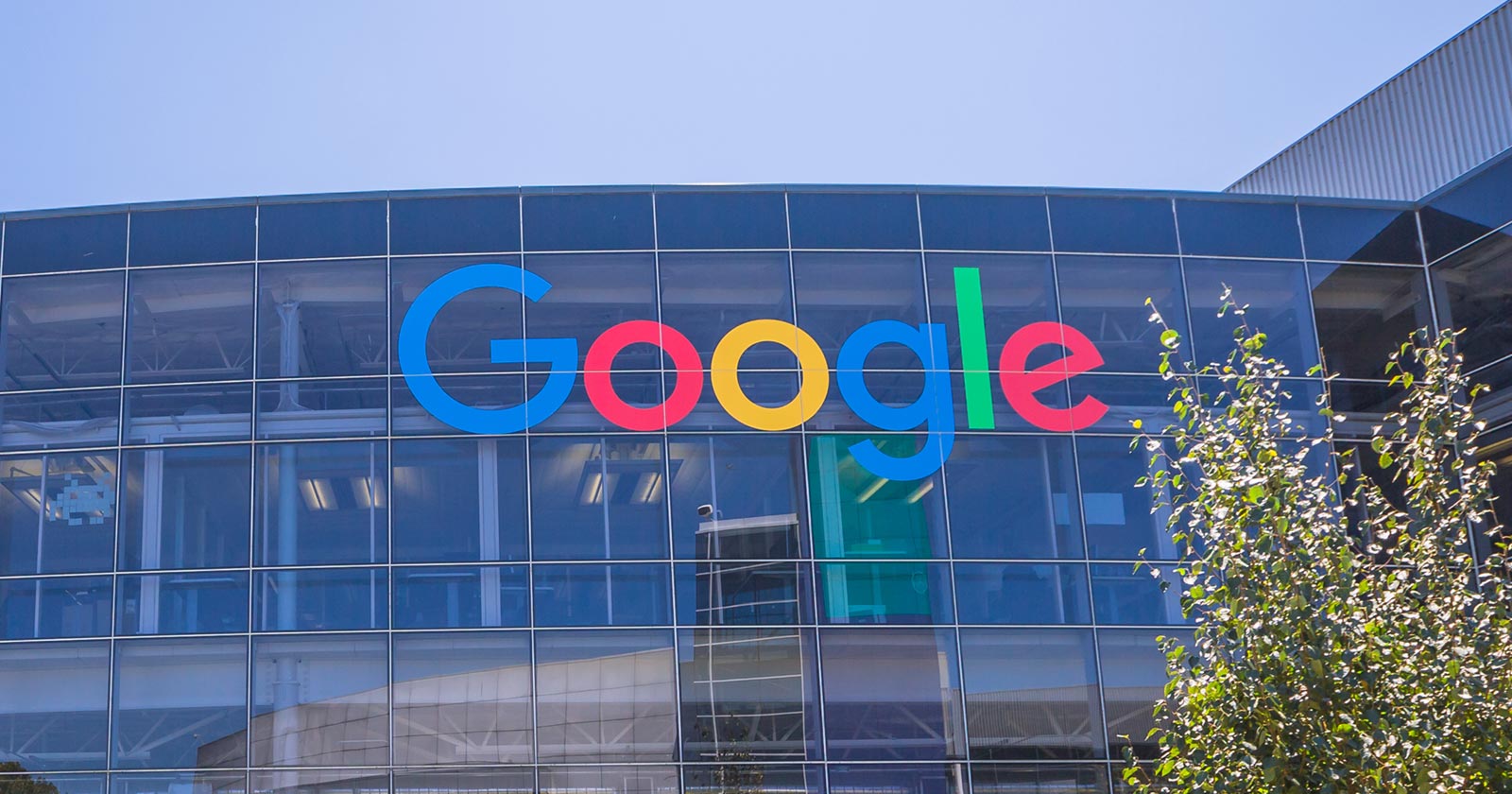SEO
Improve Rankings With This Off-Page SEO Checklist For Restaurants

In 2022, having an online presence for your restaurant business is essential.
When looking for new places to eat, people turn to search for thousands of results at their fingertips – and the competition is fierce.
If you want locals to find your restaurant while searching for places to eat in the area, you need to work on your online presence and appear prominently in those search results.
Search engine optimization (SEO) is one of the best and most affordable ways to distinguish your restaurant online.
While on-page SEO is all about optimizing your website, off-page SEO focuses on spreading your reach online.
Below, you will find an off-page SEO checklist for restaurants featuring all the elements you need to keep track of regularly.
You will learn about Google My Business, TripAdvisor, Yelp, social media, link building, and more.
1. Claim Your Google Business Profile
Google Business Profile (GBP), formerly known as Google My Business, is one of the most powerful tools for businesses everywhere.
It allows owners to increase their business’ visibility on Google and make a good first impression by highlighting what makes them unique.
Whatever information you decide to highlight is what customers will see when searching for your restaurant or restaurants near them on Google.
If you want your customers to find your restaurant on Google Search and Google Maps, you need to claim and fill out your Google Business Profile.
The more information you add about your restaurant, the bigger the chances of hungry customers finding it.
Your restaurant website is the most crucial element you need to add to Google My Business.
It will bring you an incredibly valuable free backlink and make it easy for people to navigate to your website.
Equally important for business is displaying your menu and order page.
Additional must-have Google My Business information includes:
- Location.
- Opening hours.
- Contact information.
- Photos of your dishes and the restaurant ambiance.
To make your GMB profile more attractive, showcase your daily specials, promotions, events, and behind-the-scenes videos.
If you have multiple restaurant locations, it’s good practice to have a separate Google My Business profile for each.
2. Claim Your Profiles On Yelp And TripAdvisor
Yelp and TripAdvisor are both a close second on this off-page restaurant SEO checklist.
According to a BrightLocal survey, 98% of customers read online reviews of businesses in 2021.
Websites such as TripAdvisor and Yelp are visited by millions of consumers every month.
Naturally, that’s where your restaurant needs to be.
Add your restaurant to TripAdvisor and Yelp, or claim your listing if it’s already there.
Yelp For Restaurants
After you fill in your basic information, follow these steps to customize your Yelp profile and stand out in the crowd:
- Add your menu.
- Provide additional information on your services, like delivery, table reservations, and online payment methods.
- Add a restaurant description that you optimize with relevant keywords such as “Italian restaurant,” “pizza,” or “New York” – access this guide to learn how to do keyword research.
- Add the Yelp badge to your restaurant website.
- Grow your Yelp rating by encouraging reviews and filling in your profile 100%.
- Add a call-to-action button that redirects customers to your website.
TripAdvisor For Restaurants
The rules above apply to TripAdvisor, too.
Start by filling in profile basics like name, address, and website.
Next, take your profile to the next level with these tips on how to rank higher on TripAdvisor:
- Collect reviews and reply promptly (starting with the negative ones).
- Keep your listing up to date.
- Order branded TripAdvisor stickers to decorate your windows.
- Set up direct messaging so customers can contact you directly. (This can help you solve complaints without affecting your public reviews).
- Create a Storyboard where you showcase your best photos and reviews.
3. Link Your Website On Social Media
Social media is another vital aspect of off-page SEO for restaurants. While it’s not a direct ranking factor, it can still indirectly influence SEO.
How? Having your social media profiles redirect to your website will bring you additional traffic and business, and build your authority online.
However, having the profiles isn’t enough.
You must have an active presence and interact with your followers to encourage them to share your content.
Each social network has its function.
On Facebook, you can post your menu using the ‘Start Order’ button to actively boost sales.
Instagram is where your dishes will shine. Post photos that your followers won’t be able to resist.
Twitter is an excellent place to address customer concerns.
Use it to update followers on opening hour changes, new menu items, events, and anything else they might want to know.
While Facebook, Instagram, and Twitter are the holy trinity of social media platforms, there are other platforms you can leverage that can wield surprising results, such as Pinterest, Snapchat, or TikTok.
On Pinterest, you can post delicious photos of your menu, link to your website, create recipe boards, interact with other people in the restaurant industry, and create exclusive giveaways.
Snapchat can help you attract more local customers using geofilters and engaging your audience with little games and hidden discount codes in your stories.
Use TikTok to connect to a younger audience, create hashtag challenges, do funny skits and challenges, and take customers behind the scenes.
Don’t forget to add all your social media profiles to your website.
Use social media to share user-generated content too.
However, ensure you have your customers’ express permission to share their posts on your pages.
4. Do Link Building Outreach
Getting quality backlinks from high-authority websites can help improve your site’s authority, reputation, and search rankings.
Having your restaurant featured in local online publications will expose your business to new customers, as well.
First, look for high-rated websites in the food industry and approach them with a guest post pitch.
You can offer your knowledge as a chef or restaurant owner and include a link to your restaurant website in the article.
Next, find local business directories and get in touch to add your restaurant.
The same goes for websites that rank the best restaurants in an area.
Offer to include a discount code for their visitors to sweeten the deal.
Create A Restaurant Blog
If you want relevant websites to link to you naturally, consider opening a blog where you share your experience in the restaurant industry.
Remember to do keyword research to find topics that people are interested in reading about so your articles can rank high.
Here are some restaurant blog topic ideas you can explore:
- How-tos and cooking guides (how to cook seafood, how to season rice, what wine goes with fish).
- Lists (X common kitchen ingredients, X dinner etiquette tips, X types of food for movie night).
- Menu, food, or industry trends (food trends 2022, restaurant trends 2022)
- Menu updates, limited items, and FAQs.
- New features or products (how to place an order online, how to book a table online, how to pay for your meal online).
- Pages about you and your staff (employee of the month, meet the owner, the story behind your restaurant).
When looking for keywords, keep in mind your restaurant’s cuisine and key selling point.
If you own a vegetarian restaurant, for instance, you won’t be writing about “how to cut steak” but rather “vegetarian lunch box ideas” or “how to season vegetables for grilling.”
5. Collaborate With Food Influencers
Food bloggers and influencers with a social media following can be excellent promoters of your restaurant.
They can help boost traffic to your website and increase your search engine ranking by linking to your domain.
Invite local influencers for exclusive tastings of your newest menu items so they can post about them on their blogs and social media.
You can also provide their followers with a special discount coupon.
You can find local influencers on subreddits created by and for food bloggers or use tools like meetup.com to look for foodie groups meeting in your town.
Try paid blogger outreach software if you’re willing to invest more in blogger outreach.
6. Keep Your NAP Updated Throughout All Platforms
Consistency of NAP (name, address, phone number) is an important step in restaurant SEO and a must-have item on this off-page SEO checklist.
Your NAP information should be available on your website, social media, and third-party websites.
Search engines are particularly fond of this information, as it helps users find the answers to their questions.
For your restaurant information to be shown in relevant searches, you must display your NAP information and update it constantly across all platforms.
Make sure the information is spelled the same and is displayed in the same format.
Otherwise, it might confuse users and make you untrustworthy for search engines.
7. Add Your Restaurant On Popular Review Platforms And Business Directories
Once you’ve covered your bases with Google My Business, Yelp, and TripAdvisor, it’s time to research additional directories and websites where you can list your restaurant.
Some of these will help you get a valuable backlink, but all will expose you to new customers.
For example, Bing might not be as popular as Google, but it’s worth adding your restaurant to Bing Places.
Here are other websites where you should add your restaurant to boost off-page SEO:
- Citysearch.
- Foursquare.
- Local.com.
- Yellowpages.com.
- White Pages.
Remember the advice from the previous section – keep your NAP information consistent across all platforms.
Summary
Good food is just one element of your restaurant’s success.
Without a solid online presence, you can’t cater to today’s audience of food lovers.
Getting attention online starts with your website but continues with off-page restaurant SEO.
From social media to review websites and food blogs, check off all the items on this off-page SEO checklist to make your restaurant a fixture in the local community – and a dominant force in search results.
More Resources:
Featured Image: Monster Ztudio/Shutterstock
SEO
Google On Hyphens In Domain Names

Google’s John Mueller answered a question on Reddit about why people don’t use hyphens with domains and if there was something to be concerned about that they were missing.
Domain Names With Hyphens For SEO
I’ve been working online for 25 years and I remember when using hyphens in domains was something that affiliates did for SEO when Google was still influenced by keywords in the domain, URL, and basically keywords anywhere on the webpage. It wasn’t something that everyone did, it was mainly something that was popular with some affiliate marketers.
Another reason for choosing domain names with keywords in them was that site visitors tended to convert at a higher rate because the keywords essentially prequalified the site visitor. I know from experience how useful two-keyword domains (and one word domain names) are for conversions, as long as they didn’t have hyphens in them.
A consideration that caused hyphenated domain names to fall out of favor is that they have an untrustworthy appearance and that can work against conversion rates because trustworthiness is an important factor for conversions.
Lastly, hyphenated domain names look tacky. Why go with tacky when a brandable domain is easier for building trust and conversions?
Domain Name Question Asked On Reddit
This is the question asked on Reddit:
“Why don’t people use a lot of domains with hyphens? Is there something concerning about it? I understand when you tell it out loud people make miss hyphen in search.”
And this is Mueller’s response:
“It used to be that domain names with a lot of hyphens were considered (by users? or by SEOs assuming users would? it’s been a while) to be less serious – since they could imply that you weren’t able to get the domain name with fewer hyphens. Nowadays there are a lot of top-level-domains so it’s less of a thing.
My main recommendation is to pick something for the long run (assuming that’s what you’re aiming for), and not to be overly keyword focused (because life is too short to box yourself into a corner – make good things, course-correct over time, don’t let a domain-name limit what you do online). The web is full of awkward, keyword-focused short-lived low-effort takes made for SEO — make something truly awesome that people will ask for by name. If that takes a hyphen in the name – go for it.”
Pick A Domain Name That Can Grow
Mueller is right about picking a domain name that won’t lock your site into one topic. When a site grows in popularity the natural growth path is to expand the range of topics the site coves. But that’s hard to do when the domain is locked into one rigid keyword phrase. That’s one of the downsides of picking a “Best + keyword + reviews” domain, too. Those domains can’t grow bigger and look tacky, too.
That’s why I’ve always recommended brandable domains that are memorable and encourage trust in some way.
Read the post on Reddit:
Read Mueller’s response here.
Featured Image by Shutterstock/Benny Marty
SEO
Reddit Post Ranks On Google In 5 Minutes

Google’s Danny Sullivan disputed the assertions made in a Reddit discussion that Google is showing a preference for Reddit in the search results. But a Redditor’s example proves that it’s possible for a Reddit post to rank in the top ten of the search results within minutes and to actually improve rankings to position #2 a week later.
Discussion About Google Showing Preference To Reddit
A Redditor (gronetwork) complained that Google is sending so many visitors to Reddit that the server is struggling with the load and shared an example that proved that it can only take minutes for a Reddit post to rank in the top ten.
That post was part of a 79 post Reddit thread where many in the r/SEO subreddit were complaining about Google allegedly giving too much preference to Reddit over legit sites.
The person who did the test (gronetwork) wrote:
“…The website is already cracking (server down, double posts, comments not showing) because there are too many visitors.
…It only takes few minutes (you can test it) for a post on Reddit to appear in the top ten results of Google with keywords related to the post’s title… (while I have to wait months for an article on my site to be referenced). Do the math, the whole world is going to spam here. The loop is completed.”
Reddit Post Ranked Within Minutes
Another Redditor asked if they had tested if it takes “a few minutes” to rank in the top ten and gronetwork answered that they had tested it with a post titled, Google SGE Review.
gronetwork posted:
“Yes, I have created for example a post named “Google SGE Review” previously. After less than 5 minutes it was ranked 8th for Google SGE Review (no quotes). Just after Washingtonpost.com, 6 authoritative SEO websites and Google.com’s overview page for SGE (Search Generative Experience). It is ranked third for SGE Review.”
It’s true, not only does that specific post (Google SGE Review) rank in the top 10, the post started out in position 8 and it actually improved ranking, currently listed beneath the number one result for the search query “SGE Review”.
Screenshot Of Reddit Post That Ranked Within Minutes
Anecdotes Versus Anecdotes
Okay, the above is just one anecdote. But it’s a heck of an anecdote because it proves that it’s possible for a Reddit post to rank within minutes and get stuck in the top of the search results over other possibly more authoritative websites.
hankschrader79 shared that Reddit posts outrank Toyota Tacoma forums for a phrase related to mods for that truck.
Google’s Danny Sullivan responded to that post and the entire discussion to dispute that Reddit is not always prioritized over other forums.
Danny wrote:
“Reddit is not always prioritized over other forums. [super vhs to mac adapter] I did this week, it goes Apple Support Community, MacRumors Forum and further down, there’s Reddit. I also did [kumo cloud not working setup 5ghz] recently (it’s a nightmare) and it was the Netgear community, the SmartThings Community, GreenBuildingAdvisor before Reddit. Related to that was [disable 5g airport] which has Apple Support Community above Reddit. [how to open an 8 track tape] — really, it was the YouTube videos that helped me most, but it’s the Tapeheads community that comes before Reddit.
In your example for [toyota tacoma], I don’t even get Reddit in the top results. I get Toyota, Car & Driver, Wikipedia, Toyota again, three YouTube videos from different creators (not Toyota), Edmunds, a Top Stories unit. No Reddit, which doesn’t really support the notion of always wanting to drive traffic just to Reddit.
If I guess at the more specific query you might have done, maybe [overland mods for toyota tacoma], I get a YouTube video first, then Reddit, then Tacoma World at third — not near the bottom. So yes, Reddit is higher for that query — but it’s not first. It’s also not always first. And sometimes, it’s not even showing at all.”
hankschrader79 conceded that they were generalizing when they wrote that Google always prioritized Reddit. But they also insisted that that didn’t diminish what they said is a fact that Google’s “prioritization” forum content has benefitted Reddit more than actual forums.
Why Is The Reddit Post Ranked So High?
It’s possible that Google “tested” that Reddit post in position 8 within minutes and that user interaction signals indicated to Google’s algorithms that users prefer to see that Reddit post. If that’s the case then it’s not a matter of Google showing preference to Reddit post but rather it’s users that are showing the preference and the algorithm is responding to those preferences.
Nevertheless, an argument can be made that user preferences for Reddit can be a manifestation of Familiarity Bias. Familiarity Bias is when people show a preference for things that are familiar to them. If a person is familiar with a brand because of all the advertising they were exposed to then they may show a bias for the brand products over unfamiliar brands.
Users who are familiar with Reddit may choose Reddit because they don’t know the other sites in the search results or because they have a bias that Google ranks spammy and optimized websites and feel safer reading Reddit.
Google may be picking up on those user interaction signals that indicate a preference and satisfaction with the Reddit results but those results may simply be biases and not an indication that Reddit is trustworthy and authoritative.
Is Reddit Benefiting From A Self-Reinforcing Feedback Loop?
It may very well be that Google’s decision to prioritize user generated content may have started a self-reinforcing pattern that draws users in to Reddit through the search results and because the answers seem plausible those users start to prefer Reddit results. When they’re exposed to more Reddit posts their familiarity bias kicks in and they start to show a preference for Reddit. So what could be happening is that the users and Google’s algorithm are creating a self-reinforcing feedback loop.
Is it possible that Google’s decision to show more user generated content has kicked off a cycle where more users are exposed to Reddit which then feeds back into Google’s algorithm which in turn increases Reddit visibility, regardless of lack of expertise and authoritativeness?
Featured Image by Shutterstock/Kues
SEO
WordPress Releases A Performance Plugin For “Near-Instant Load Times”

WordPress released an official plugin that adds support for a cutting edge technology called speculative loading that can help boost site performance and improve the user experience for site visitors.
Speculative Loading
Rendering means constructing the entire webpage so that it instantly displays (rendering). When your browser downloads the HTML, images, and other resources and puts it together into a webpage, that’s rendering. Prerendering is putting that webpage together (rendering it) in the background.
What this plugin does is to enable the browser to prerender the entire webpage that a user might navigate to next. The plugin does that by anticipating which webpage the user might navigate to based on where they are hovering.
Chrome lists a preference for only prerendering when there is an at least 80% probability of a user navigating to another webpage. The official Chrome support page for prerendering explains:
“Pages should only be prerendered when there is a high probability the page will be loaded by the user. This is why the Chrome address bar prerendering options only happen when there is such a high probability (greater than 80% of the time).
There is also a caveat in that same developer page that prerendering may not happen based on user settings, memory usage and other scenarios (more details below about how analytics handles prerendering).
The Speculative Loading API solves a problem that previous solutions could not because in the past they were simply prefetching resources like JavaScript and CSS but not actually prerendering the entire webpage.
The official WordPress announcement explains it like this:
Introducing the Speculation Rules API
The Speculation Rules API is a new web API that solves the above problems. It allows defining rules to dynamically prefetch and/or prerender URLs of certain structure based on user interaction, in JSON syntax—or in other words, speculatively preload those URLs before the navigation. This API can be used, for example, to prerender any links on a page whenever the user hovers over them.”
The official WordPress page about this new functionality describes it:
“The Speculation Rules API is a new web API… It allows defining rules to dynamically prefetch and/or prerender URLs of certain structure based on user interaction, in JSON syntax—or in other words, speculatively preload those URLs before the navigation.
This API can be used, for example, to prerender any links on a page whenever the user hovers over them. Also, with the Speculation Rules API, “prerender” actually means to prerender the entire page, including running JavaScript. This can lead to near-instant load times once the user clicks on the link as the page would have most likely already been loaded in its entirety. However that is only one of the possible configurations.”
The new WordPress plugin adds support for the Speculation Rules API. The Mozilla developer pages, a great resource for HTML technical understanding describes it like this:
“The Speculation Rules API is designed to improve performance for future navigations. It targets document URLs rather than specific resource files, and so makes sense for multi-page applications (MPAs) rather than single-page applications (SPAs).
The Speculation Rules API provides an alternative to the widely-available <link rel=”prefetch”> feature and is designed to supersede the Chrome-only deprecated <link rel=”prerender”> feature. It provides many improvements over these technologies, along with a more expressive, configurable syntax for specifying which documents should be prefetched or prerendered.”
See also: Are Websites Getting Faster? New Data Reveals Mixed Results
Performance Lab Plugin
The new plugin was developed by the official WordPress performance team which occasionally rolls out new plugins for users to test ahead of possible inclusion into the actual WordPress core. So it’s a good opportunity to be first to try out new performance technologies.
The new WordPress plugin is by default set to prerender “WordPress frontend URLs” which are pages, posts, and archive pages. How it works can be fine-tuned under the settings:
Settings > Reading > Speculative Loading
Browser Compatibility
The Speculative API is supported by Chrome 108 however the specific rules used by the new plugin require Chrome 121 or higher. Chrome 121 was released in early 2024.
Browsers that do not support will simply ignore the plugin and will have no effect on the user experience.
Check out the new Speculative Loading WordPress plugin developed by the official core WordPress performance team.
How Analytics Handles Prerendering
A WordPress developer commented with a question asking how Analytics would handle prerendering and someone else answered that it’s up to the Analytics provider to detect a prerender and not count it as a page load or site visit.
Fortunately both Google Analytics and Google Publisher Tags (GPT) both are able to handle prerenders. The Chrome developers support page has a note about how analytics handles prerendering:
“Google Analytics handles prerender by delaying until activation by default as of September 2023, and Google Publisher Tag (GPT) made a similar change to delay triggering advertisements until activation as of November 2023.”
Possible Conflict With Ad Blocker Extensions
There are a couple things to be aware of about this plugin, aside from the fact that it’s an experimental feature that requires Chrome 121 or higher.
A comment by a WordPress plugin developer that this feature may not work with browsers that are using the uBlock Origin ad blocking browser extension.
Download the plugin:
Speculative Loading Plugin by the WordPress Performance Team
Read the announcement at WordPress
Speculative Loading in WordPress
See also: WordPress, Wix & Squarespace Show Best CWV Rate Of Improvement
-

 WORDPRESS7 days ago
WORDPRESS7 days ago10 WordPress Influencers to Follow in 2024 – WordPress.com News
-

 SEARCHENGINES7 days ago
SEARCHENGINES7 days agoGoogle Image Search Adds Pixel Level Object Segmentation Animation
-

 MARKETING7 days ago
MARKETING7 days agoFeeling Stuck: What to Do When You Don’t Know What to Do
-

 PPC5 days ago
PPC5 days agoA History of Google AdWords and Google Ads: Revolutionizing Digital Advertising & Marketing Since 2000
-

 PPC6 days ago
PPC6 days agoCompetitor Monitoring: 7 ways to keep watch on the competition
-

 SEARCHENGINES6 days ago
SEARCHENGINES6 days agoMore Google March 2024 Core Update Ranking Volatility
-

 PPC6 days ago
PPC6 days ago31 Ready-to-Go Mother’s Day Messages for Social Media, Email, & More
-

 WORDPRESS6 days ago
WORDPRESS6 days agoThrive Architect vs Divi vs Elementor















You must be logged in to post a comment Login